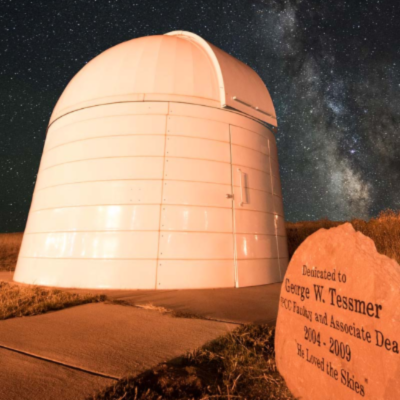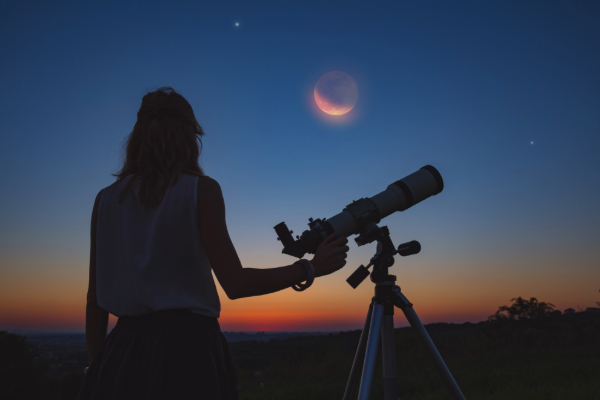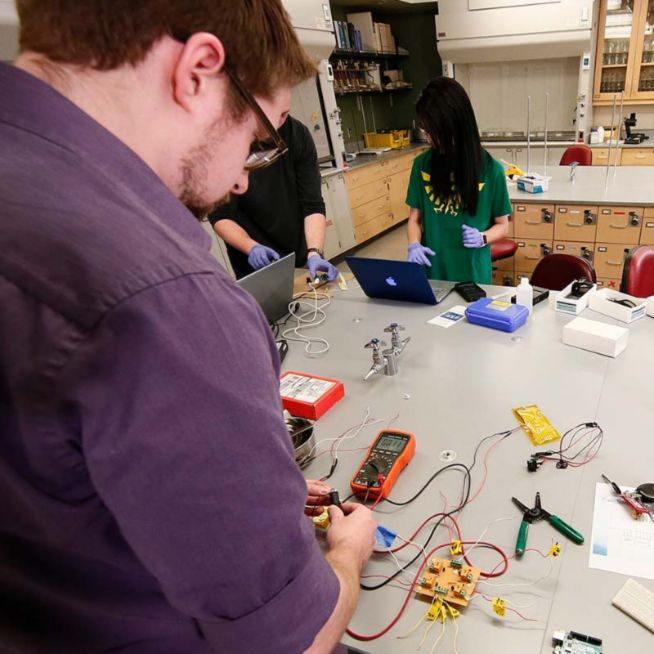PPSC is part of the NASA-funded Colorado Space Grant Consortium. Every spring semester,
students have the chance to design and build a payload for a high-altitude balloon
flight through the DemoSat program. Imagine watching an experiment you designed soar
to 100,000 feet above the Colorado plains!
Learn New Skills and Build Your Resume
The DemoSat project offers a unique opportunity to gain practical science and engineering
experience. You'll learn about computer programming, payload design, and data analysis,
all while collaborating with fellow students.
Former DemoSat participants have gone on to join NASA RockOn workshops, the NASA Community
College Aerospace Scholars program, and the Colorado Undergraduate Space Research
Symposium. This hands-on experience not only enhances your resume but also impresses
transfer schools and future employers.


